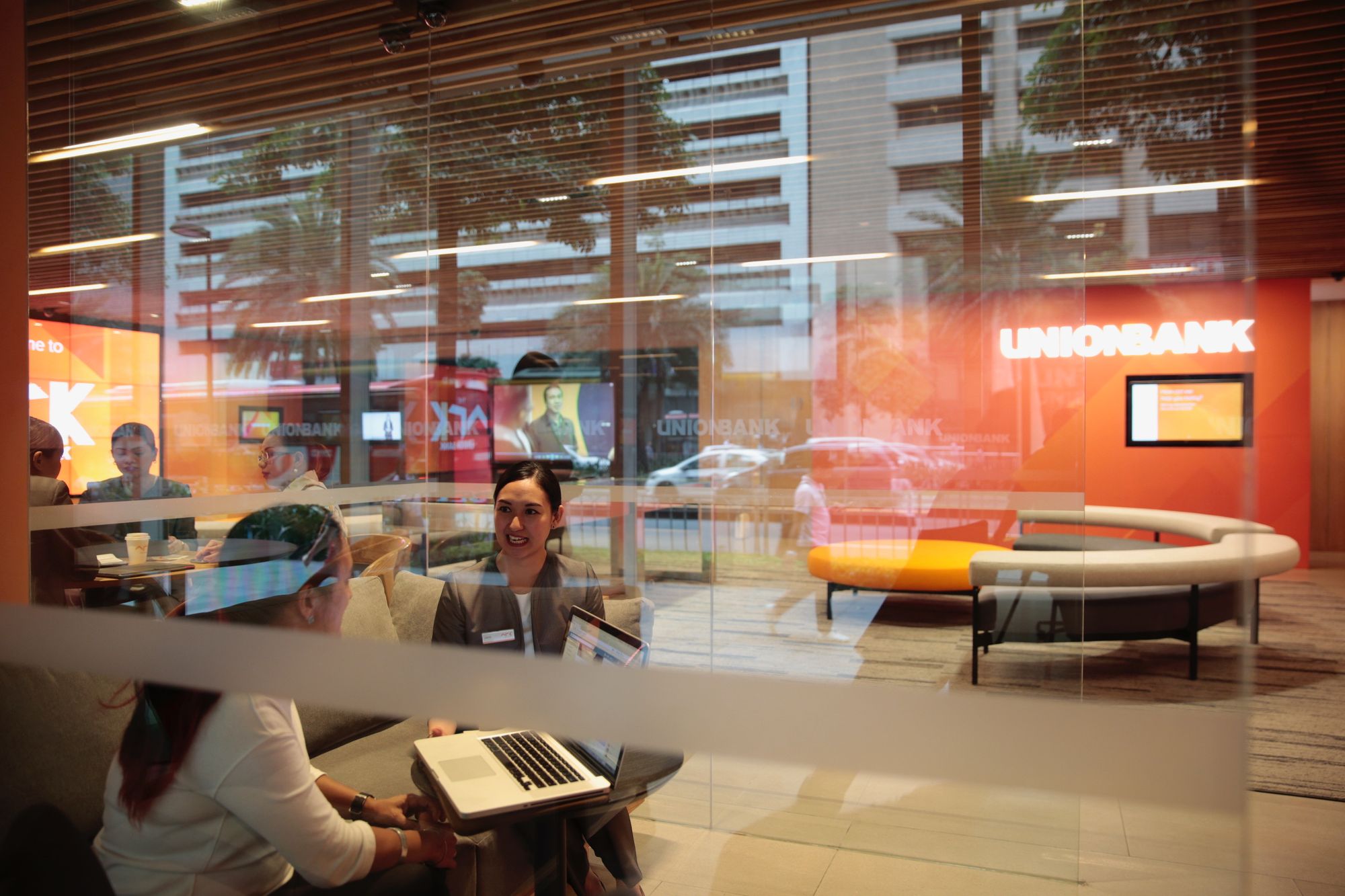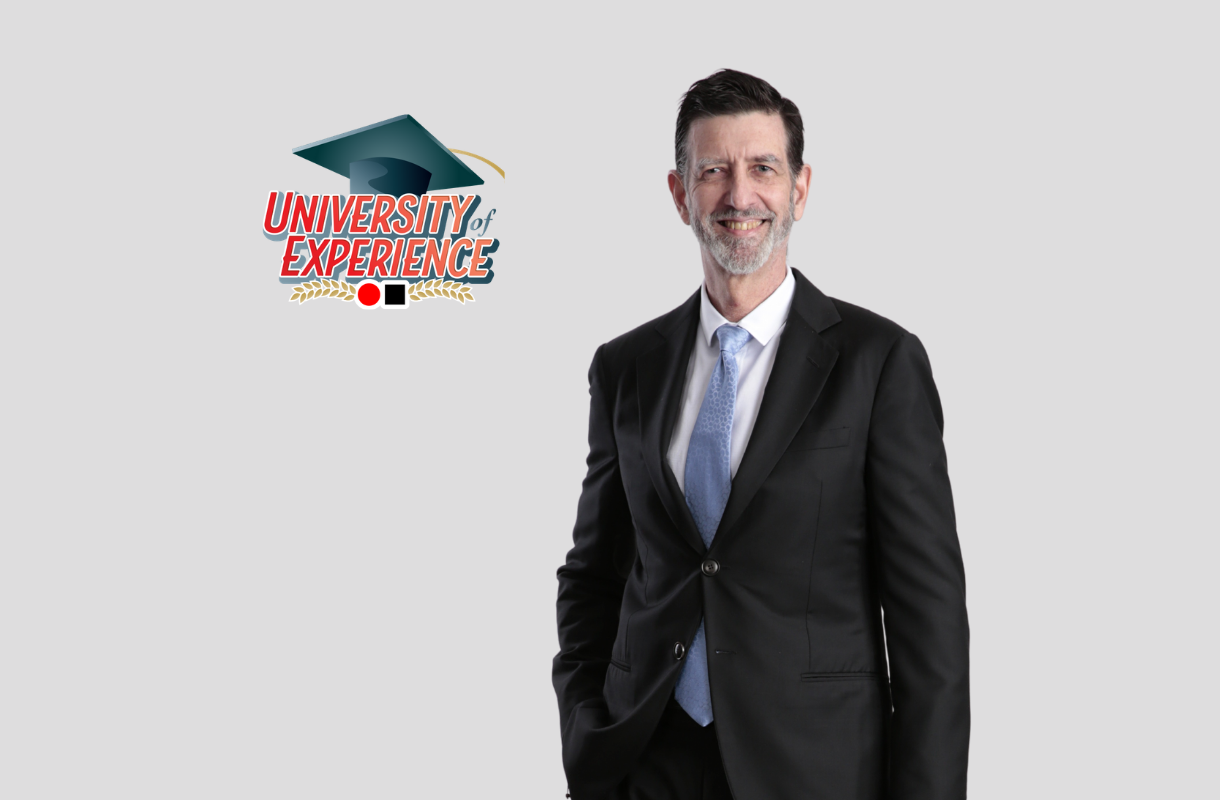By Tito Ortiz, Vice Chairman, UnionBank
The following is a special keynote message from JAO delivered at the CEO Virtual Summit 2020.
The rise of the digital economy has required businesses to operate faster and decide quicker.
It’s the speed of innovation and the speed of response to our customer expectations and demand that will spell the competitive difference. Traditional vertically organized companies with defined command and control structures are probably going to be inefficient and ineffective for the most part as they fail to respond to rapidly evolving customer behaviors and competitive environmental disruptions.
To succeed in this highly digital world, we believe that there is a need to redefine command and control procedures and protocols and adapt—as an alternative—horizontal trust protocols across our customers, team members, partners, and other stakeholders in our ecosystems. This is what we in UnionBank have long been preparing for as we envisioned a future shaped by three mega trends.
The first mega trend is the deconstruction of the firm.
Access to outsourced micro-services in platforms hosted in the cloud give companies competitive advantages over vertically integrated and highly bureaucratic corporations. This provides them scalability on demand and agility to generate relevant customer experiences in short timeframe sprints. In this future, vertical integration may be uncompetitive. Companies will increasingly collaborate and the center of gravity moves away from the corporate towards an ecosystem of partners and platforms that provide the different utilities for businesses to function efficiently and effectively.
The second mega trend is hyper-personalization at scale.
In contrast to economies of scale organized around mass production techniques, in the future, customers will be enabled to hyper-personalize the products and services they consume. This is made possible by the rise of platforms with do-it-yourself functionalities, open application programming interfaces (APIs), software development kits (SDKs), and other development tools. The customer as a prosumer will disintermediate vertically integrated firms and those who succeed are the trusted entities who vet and aggregate third-party apps, platforms, and marketplaces that respond to customer needs and wants in real time.
Lastly, the third mega trend is the collaborative commons may become the new economic order,
characterized by the devolution of market powers towards individuals and enterprises who turn themselves into both consumers and producers of goods and services within a shared platform.
The emergence of data-driven and artificial intelligence-powered apps and platforms acting as resource aggregators, along with the distributed and collaborative nature of the Internet, helps facilitate this economic order.
We all know that Airbnb grew to be the largest hotel chain without owning real estate, Grab and Uber the largest taxi companies without owning any vehicles, Amazon and Alibaba as the most valuable retailers without owning any inventory, and YouTube, Instagram, and Facebook as the top media platforms, which own zero content.
This shared economy could fuel exponential innovation at unprecedented speed and ease as the three mega trends converge. Thus, vertically organized enterprises that are unable to participate in the collaborative commons will not be sustainable as value creators for its stakeholders. But as we move towards decentralized horizontal business models, we need to create alternative frameworks or protocols for governance and trust.
I foresee distributed ledger technologies as that substitute. Blockchain is governance by design. It has the elements of good governance: transparency through verified shared ledgers, accountability through immutable records, it has a single source of truth, and it is fair through self-executing and programmable smart contracts.
So, at UnionBank, given this vision of the future, how are we preparing for that future?
We have six pillars: culture, people, strategy, space, process, and ubuntu, which means community. But since this is an HR summit—and in the interest of time—let me focus on two: culture and people, which are the most important and are the foundation of any transformation journey. Transformation is not about technology. It’s about people, it’s about culture.
First is culture.
We are committed to build a culture that’s values-based and purpose-led in contrast to imposing a compliance-based and rules-led way of life. Building a customer-centric culture and living it is a critical component to building a sustainable and future-ready enterprise. It is important for this purpose of UnionBank to harmonize with the purpose of each and every UnionBanker because this will serve as a foundation of trust within the organization. Knowing who we are and why we do what we do is our ethos and this guides our daily work and this is what our customers engage with, not just our products and services.
So what were some of our interventions? Let me talk about GoBeyond and REaCH.
I mentioned earlier that digital transformation is largely about culture and people and not technology. I was able to say so because we learned this lesson firsthand.
Way back in 1999 and 2000, we already had the aspiration of becoming a digital financial portal and we were ready to transform—in fact, this was in the covers of our annual reports for those years. But it did not manifest immediately because the culture within the organization and the people and structure in which we do work and how we do work was not yet ready.
Hence, in the following years, we worked on a series of middle-out programs, instilling the mindset that change and initiatives do not come from the top but it can come from the very people who are seeing the problems on the ground and interacting with the customers directly in millions of moments of truth. Some examples are our GoBeyond Communities, which is our employee-led social responsibility program and the REaCH program where employees get to propose and develop prototypes of innovative solutions that address challenges experienced in everyday work.
We also encourage employees to tell their stories of integrity, magis, and ubuntu in the workplace. These are our values. Through this, we’ve heard stories of how employees even at the very bottom of the hierarchy overcome limitations set by rules and regulations not for the sake of non-compliance but for the sake of serving our customers and delivering better experience as aligned with our higher purpose and values. Again values-based, purpose-led, and by telling these stories to the whole organization and celebrating it, this culture is fortified.
From the beginning of time, culture within families were stories around the kitchen table and, among tribes, stories around the campfire. Culture is built into our everyday stories. One of the highlights was when we saw the effectiveness of these various team member empowerment programs when we embarked on creating the first digital branch in the country, The Ark. Those of us in the Board simply just approved the project at the beginning and allowed agile teams to fully take control of the whole project. We didn’t have to approve every piece of it. The next time the Board saw The Ark was during the ribbon-cutting ceremony when it had to be unveiled publicly and, let me tell you, it wasn’t exactly what was proposed and it came up over budget. But, still, we produced an award-winning branch structure and framework with great customer experience, which has been the model and has won many awards across Asia.

The same happened with our UnionBank Online app. After providing high-level guidelines and approving the initiative, the next time we knew was when we only had to download it to experience what the team came up with, and we continue to iterate this app approximately once every two weeks since we launched it in co-creative processes with our customers.
We had to build the trust that our team members will make the right decisions in the moments of truth as they say things happen on the ground. Not only did this hasten the project timelines but it ensured that agile teams were focused on delivering a superior product for our customers and not on preparing reports for approval. Our fast innovations were made possible as we moved further and more ambitiously into an agile structure and culture, which is now embedded in the organization.
The agile manifesto explicitly values quick launches to respond to customer behavior rather than comprehensive documentation or approvals. In agile sprints, changes in product features can happen every two weeks. We in the Board know this that’s why we’ve accepted that it’s impossible to monitor every step of each project. What’s important is that the end goal of delivering superior customer experience aligned with our values and purpose is fulfilled.
But this doesn’t mean that governance is not in place. Governance is present, embedded in our culture and in our team members’ way of working self-governance and self-regulation are in place and have become effective because we’ve taken the time and effort to develop a values-based culture among our team members. This is why it has been easy for us to scale up from a few experimental digital initiatives in the past. Today, all projects are done the agile way.
We are also realizing that agile is not enough. As the digital economy accelerates, we will be required to speed up product feature launches to respond rapidly to changes in customer behaviors and customer expectations. With this, our back-end IT and operations supporting development and testing must also accelerate. With agile as a foundation we are already in the early stages of adopting devops.
Devops is a natural progression of agile, which compared to the siloed processes before, aims to automate and integrate development and testing to release products and features faster. So now, the back-end becomes as agile as the front end. In the future, agile teams are expected to have the capabilities to do product development and testing on their own and this requires a new level of empowerment and trust on our people so that we can be on the road to continuous integration and continuous deployment of products and services.
There are no exemptions from the transformation journey; everyone must partake, from top to bottom. We talked about the management team, the middle managers, and all UnionBank team members, but the Board of Directors also needs to be future-ready. Cognitive biases need to be replaced by first principles, thinking hubris by humility, incrementalism by moonshot, physical space by virtual space, product centricity by customer centricity, utility versus behaviors, project studies versus experimentation, heuristics versus data science and artificial intelligence, do-it-yourself projects versus collaboration, card ID or digital ID versus digital footprints, and more.
I am reminded of a famous memo written by Marc Andreessen in 2011. It was entitled ‘Why Is Software Eating The World?’ This is so if we look at the various businesses and enterprises that are building competitive business models in the fourth industrial age, I personally believe that as we approach singularity, artificial intelligence will eat software. In that world, humans will design, AI will execute, and humans will consume. The common language will be code and we will be simulations in virtual worlds existing only through code. Our digital footprint in the form of codes will identify our existence. Descartes said “cogito ergo sum”, I think therefore I am. In the future it might be “codexum ergo sum“, I am code therefore I am. In this future, I think we will be horizontally organized, agile, and a digital company. All enterprises will have to be technology companies and we need to establish decentralized trust-based protocols so that we continue to go have governance in this new world.
Thank you and good luck to us all.
University of Experience is a new Aboitiz Eyes section that features leadership insights drawn from the unique experiences, perspectives, and wisdom of leaders who have stood at the helm of Aboitiz over the years.
If you enjoyed this article, would like to suggest a topic, or share your feedback, please CLICK HERE.

